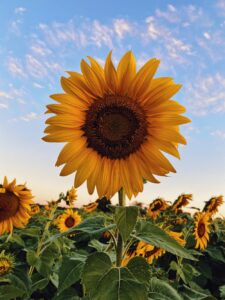All Saints’, Dorval
March 2, 2022
This is the sermon as written. It ended up being preached somewhat differently at each service.

Then you shall call, and the LORD will answer; you shall cry for help, and he will say, Here I am. If you remove the yoke from among you, the pointing of the finger, the speaking of evil, if you offer your food to the hungry and satisfy the needs of the afflicted, then your light shall rise in the darkness and your gloom be like the noonday. The LORD will guide you continually, and satisfy your needs in parched places, and make your bones strong; and you shall be like a watered garden, like a spring of water, whose waters never fail. Your ancient ruins shall be rebuilt; you shall raise up the foundations of many generations; you shall be called the repairer of the breach, the restorer of streets to live in.
The single most consistent message in all of scripture is this message of concern for the poor and needy, for ordinary people trampled beneath the boot of the great powers of their day. Over and over, through the patriarchs and matriarchs, the prophets, priests and kings, God implores: just take care of each other. Just attend to the essentials, to the health of lands and communities, to making sure that people have enough, that they can live in peace and security. If we are oppressing and abusing the poor in our neighbourhoods, God is not interested in our prayers, our liturgies, our feasts or our fasts.
For the past week, the world has watched with appalled fascination as Russia invades Ukraine, attempting to re-annex a sovereign, democratic state. Heroes and villains, tragedies and triumphs, have emerged. But the ordinary people of both countries are unanimous – none of them want this war. It brings only suffering, both to those in the path of the tanks and to the soldiers – many of them conscripted teenagers – driving them, their families back home, and all the everyday Russians now coping with the fallout of sanctions and the shame of their government’s actions. All these people are being sacrificed to the delusions of an autocrat, when all they want is to be left in peace to grow food, raise their children, and live on the land that has been in their families for generations.
We have been inspired to witness the Ukrainian grandmother confronting the Russian soldier and handing him sunflower seeds – the national flower of the country – and telling him, “Put these in your pockets so that at least flowers will grow when you die on our soil.” This echoes with the phrase, originating with a Greek poet and later adopted by the Mexican Zapatista movement, “They tried to bury us. They didn’t know that we were seeds.”
The poor and oppressed – both the defiant grandmother and the conscripted invader – may fall, may return to the dust, but those who tried to bury them will discover that they were seeds. And it is through these seeds, that go down to the unencouraging earth, that God works.
We all come from the same dust. We are all captive to the same systems of sin. We are all in need of the same salvation.
As we cheer on the valiant people of Ukraine, we must remember that it would be all too easy for us to have wound up on the wrong side. God knows the government of the country of which I am a citizen has enough blood on its hands. And we must carefully examine our consciences if we feel passionately about the current conflict but have shrugged and turned away from other very similar situations in places that are further away (or much closer to home …) and where the people look less like us.
We are all stuck down in the mud and dust together, and only God can get us out.
But while we’re here, we might as well plant some seeds – in the mucky, half-frozen mud of March – and trust in God to bring something good out of it.
Bombs are falling, but we are called to build. To rebuild the ancient ruins, to raise up the foundations of many generations; to be called the repairer of the breach, the restorer of streets to live in.
Eighty-two years ago, watching another mad European autocrat invade an innocent country, W. H. Auden wrote:
I sit in one of the dives
On Fifty-second Street
Uncertain and afraid
As the clever hopes expire
Of a low dishonest decade:
Waves of anger and fear
Circulate over the bright
And darkened lands of the earth,
Obsessing our private lives;
The unmentionable odour of death
Offends the September night.
Accurate scholarship can
Unearth the whole offence
From Luther until now
That has driven a culture mad,
Find what occurred at Linz,
What huge imago made
A psychopathic god:
I and the public know
What all schoolchildren learn,
Those to whom evil is done
Do evil in return.
All I have is a voice
To undo the folded lie,
The romantic lie in the brain
Of the sensual man-in-the-street
And the lie of Authority
Whose buildings grope the sky:
There is no such thing as the State
And no one exists alone;
Hunger allows no choice
To the citizen or the police;
We must love one another or die.
Defenceless under the night
Our world in stupor lies;
Yet, dotted everywhere,
Ironic points of light
Flash out wherever the Just
Exchange their messages:
May I, composed like them
Of Eros and of dust,
Beleaguered by the same
Negation and despair,
Show an affirming flame.
We are dust – all of us, together. We are seeds. We must love one another, or die. Through and out of the mud, the inevitable death and sin, let us trust in God, and grow.
Amen.
Leave a Reply